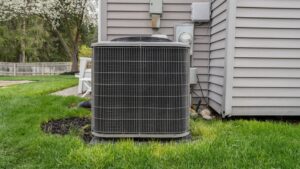When the summer heat starts soaring, the last thing you want is an air conditioner that’s not pulling its weight. But before you rush to call an HVAC technician, consider this: your insulation might be the real culprit.
Why Your AC Struggles When Insulation Fails
Insulation is your home’s first line of defense against extreme temperatures. If it’s not up to par, your air conditioner must work harder to maintain a comfortable indoor climate. This not only leads to higher energy bills but can also reduce the lifespan of your AC unit.
The Hidden Connection Between Insulation and Cooling Efficiency
Insulation acts as a barrier to heat flow and is critical for keeping your home cool in the summer and warm in the winter. When insulation is inadequate or damaged, heat can infiltrate your home, making your AC work overtime. Proper insulation can improve your AC’s efficiency by maintaining stable indoor temperatures.
Signs Your Poor Insulation is Sabotaging Your Air Conditioner
- Uneven Temperatures: Some rooms/floors are warmer than others, indicating heat gain through poorly insulated areas.
- High Energy Bills: Rising costs without increased usage can point to insulation problems.
- AC Running Constantly: If your AC seems to be running nonstop, it could be compensating for poor insulation.
Where Heat Sneaks In: Common Insulation Problem Areas
– Attics: These are notorious for heat gain. Without proper insulation, your attic can become a heat trap.
– Walls and Windows: Gaps and insufficient insulation allow heat to penetrate.
– Basements and Crawl Spaces: Often overlooked, these areas contribute to poor insulation.
Attic Insulation: Your First Line of Defense Against Heat
The attic is one of the most critical areas for insulation. Proper attic insulation reduces heat gain, helping your AC maintain cooler temperatures with less effort. Spray foam insulation is particularly effective here due to its excellent sealing properties, preventing air leaks and enhancing energy efficiency.
Wall and Window Insulation Issues That Kill AC Performance
Walls and windows are common culprits in poor insulation scenarios. If you’re feeling drafts, it’s time to assess the insulation. Upgrading to energy-efficient windows and adding spray foam insulation can significantly cut down on unwanted heat transfer.
Quick DIY Insulation Checks You Can Do Today
- Feel for Drafts: Walk around your home and check for drafts near windows and doors.
- Inspect the Attic: Look for areas where insulation appears thin or damaged.
- Check for Moisture or Odors: These can indicate insulation issues, particularly in basements and crawl spaces.
When to Call a Professional for Insulation Assessment
If your DIY checks reveal potential issues, or if you’re still experiencing high energy bills and comfort issues, it’s time to call in a professional. An insulation contractor can provide an in-depth inspection and recommend the best solutions for your home.
How Much Money Poor Insulation is Costing You
Inadequate insulation can significantly inflate your energy bills. According to industry standards, proper insulation can save homeowners up to 20% on heating and cooling costs. Over time, these savings add up, making insulation upgrades a smart financial decision.
Simple Insulation Fixes That Boost AC Effectiveness
– Add Spray Foam in Key Areas: Especially in attics, walls and rimjoist, spray foam provides superior sealing.
– Seal Gaps and Cracks: Use caulk or weatherstripping to seal around windows and doors.
– Upgrade Insulation Materials: Consider replacing outdated materials with high-efficiency options.
Beyond Insulation: Other Factors Affecting Your AC’s Performance
While insulation is crucial, other factors like AC maintenance, ductwork integrity, and thermostat settings also play a role in your home’s cooling efficiency. Regular maintenance and smart thermostat use can complement good insulation practices.
Creating a Whole-Home Cooling Strategy
A comprehensive approach to home cooling involves a mix of good insulation, regular HVAC maintenance, and energy-efficient practices. By addressing all these areas, you can ensure your home remains comfortable year-round, without breaking the bank.
Proper insulation is an often-overlooked aspect of home comfort and energy efficiency. By taking steps to assess and improve your insulation, you can enhance your air conditioner’s performance, reduce energy costs, and enjoy a cooler home all summer long.

